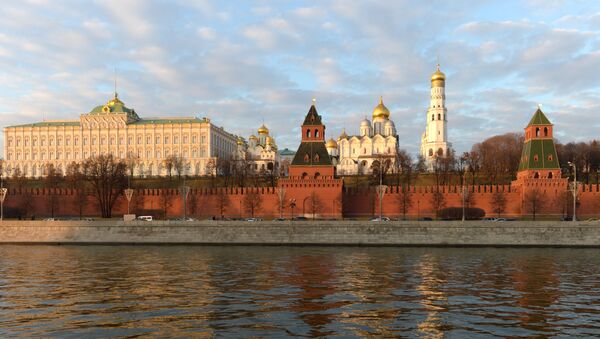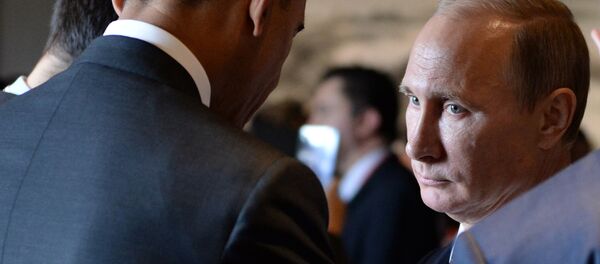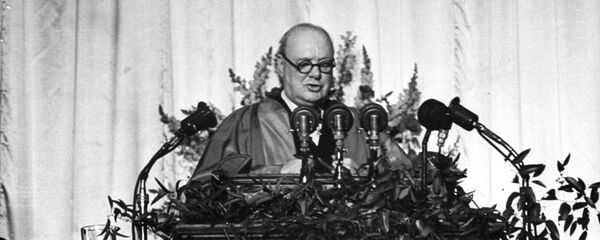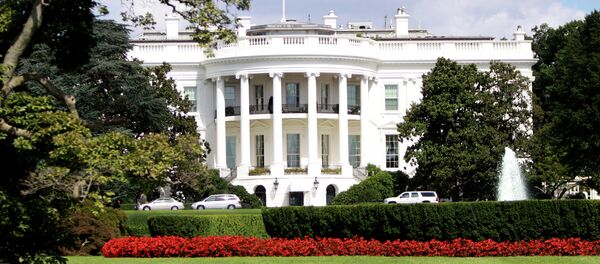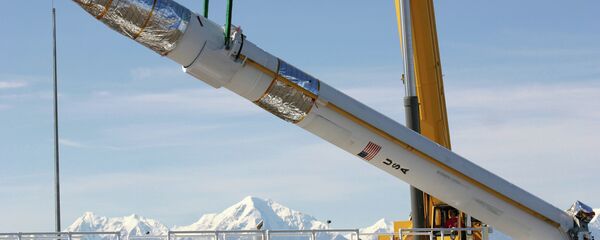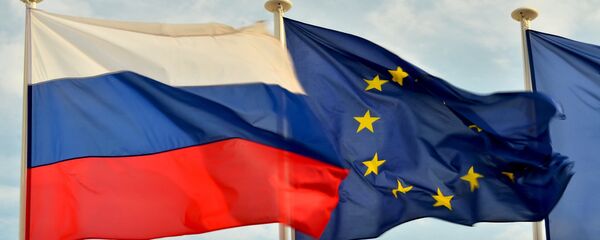With NATO beefing up its presence along Russia's borders and Washington proposing "a quadrupling of US military expenditure in Europe to combat the 'number one global threat' facing the US, Russia too is rearming, posturing militarily, and reminding the West that it will not balk at using nuclear weapons."
At the same time, "the conflict in Ukraine grumbles on, with little sign that the Minsk Agreement will be fully implemented, while the West maintains a sanctions regime that not only has not changed Russian policy but has solidified Russian popular opinion behind their president."
"And in Syria, despite Russia's latest withdrawal announcement, both sides remain dangerously close to a proxy war, with Russia backing the Assad regime and the West backing the so-called moderate opposition."
The confrontation over Ukraine which started in 2014, the diplomat suggests, chilled relations overnight, while dashing Western hopes that Russia might be enticed to gradually reform along Western lines.
"To Russia, the overthrowing of the Yanukovich regime was the latest in a series of Western-sponsored regime changes that caused direct damage to Russian interests, and this time in the country to which it saw itself as closest."
For its part, Brenton added, the West accused Russia of "seizing Crimea, and fostering a separatist war in the Donbass region," which was seen as "a flagrant breach of the international order, and [a move presaging] a more threatening and revanchist Russia in other parts of the former Soviet Union."
"There are differences. The old communist/capitalist ideological split is no more. And the opposing sides are a great deal more unequal than they were last time. It is hard to imagine Europe breaking down into two mutually antagonistic blocs. But we could too easily travel a long way along that road – remilitarizing Europe, deepening mutual hostility, and enhancing the scope for a horrible accident."
Walking the two sides back from the brink, Brenton suggests, "is going to require intelligent statesmanship," and it "is going to have to come from the West."
This, he notes, stems from the fact that, strictly speaking, "the West is overwhelmingly the [more] powerful of the two sides…NATO has six times Russia's population, 10 times its defense expenditure, about 20 times its GDP, and has advanced its front line 500 miles closer to Moscow since 1989."
"Russia is on the defensive. Their nuclear and overflight posturing amounts to the bristling of a threatened animal. The West, with its concern about the possible [and hypothetical e.d.] destabilization of Estonia, can afford to take risks. Russia, which sees itself as encircled, subverted, and its deterrent capabilities undermined by US anti-ballistic missile plan, cannot."
"First and foremost, we should urgently reinstate the Russia/NATO Council that was absurdly closed down as part of Western sanctions. We need to task it with finding confidence building measures – on timing and transparency of exercises for example – to counter the military escalation."
At the same time, the diplomat adds, "we need to get real about Syria. We know that the moderate opposition we so loudly support are in fact factious, unreliable and 'intermingled' (according to the Pentagon) with Al-Qaeda. They are so unreliable that we won't even supply them with certain kinds of weaponry because we fear it would fall into the hands of ISIL."
The West, the diplomat suggests, should make a shift toward the Russian position, "as the US is gradually beginning to do – both because it is right for Syria and because it builds up our cooperation with Russia in a policy area where our long term objectives (combatting Islamism) are actually very close."
Finally, Brenton notes, "the other issue on which the West should douse tension is, of course, Ukraine. Firstly, the West has to make it clear [that] there is simply no prospect of Ukraine – or Georgia – joining NATO in the foreseeable future."
"Secondly, we should tackle the problems of the Minsk Agreement in a more honest way. Both sides have failed to deliver on the ground, where neither has complete control over 'their' forces. But the core threat to Minsk lies in the Ukrainian government's inability, or unwillingness, to deliver on its promise of negotiated autonomy for the Donbass."
Such an approach, the diplomat slyly suggests, "would also help the West back away from a sanctions regime that everyone knows is not working."
Ultimately, Brenton notes, if Western officials and diplomats play it smart, they will take these "small first steps," which "may help turn around what has begun to look like an irreversible dynamic."
"It will not be easy. Western politicians have invested a lot in being seen to stand up to the allegedly rampant Russian bear. But this is a bear thoroughly, if noisily, on the defensive. The sensible Western approach is to regenerate trust and cooperation. The depressing, costly and dangerous alternative is to maintain what looks like an unthinking slide into long-term confrontation."
